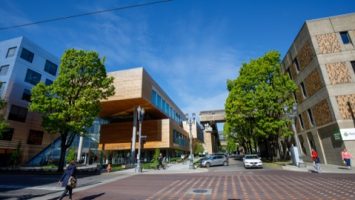
The National Science Foundation (NSF), the Department of Energy (DOE), and the Department of Homeland Security (DHS) have launched the Civic Innovation Challenge – a competition to award research teams with grants that will enable them to develop scalable, sustainable solutions to community-identified challenges.
Teams – which should include civic partners (such as local, state, and tribal government officials, and non-profit and community leaders) working with technical and social science researchers – are invited to apply to one of two tracks:
- COMMUNITIES AND MOBILITY – offering better mobility options to solve the spatial mismatch between housing affordability and jobs; or,
- RESILIENCE TO NATURAL DISASTERS – equipping communities for greater preparedness and resilience to natural disasters.
The Challenge is organized in two stages. Teams will first compete for planning grants of up to $50,000 over a period of four months. Those who are issued planning grants qualify for a 12-month competition to refine projects until they are ready for implementation. Winning teams will receive $1 million each – about $9 million is expected to be issued over the entire competition – with funding coming from NSF, DOE, and DHS.
The teams’ proposals will be reviewed by civic leaders and researchers in NSF-led review panels. NSF, DOE, and DHS will jointly select awardees. Applications are due July 1, 2020.
“The Civic Innovation Challenge is the latest step by NSF to provide funding for high-need research areas with significant societal impact,” said Margaret Martonosi, NSF Assistant Director for Computer and Information Science and Engineering. “We are thrilled to partner with DOE and DHS to support community-based innovation. The structure of the Civic Innovation Challenge will allow for teams to learn from each other and develop transferable approaches poised to address key civic priorities on a national scale.”


